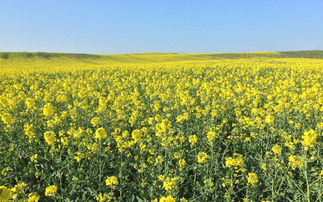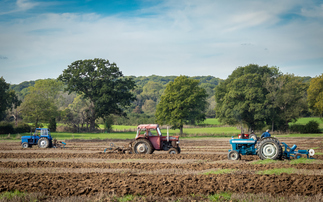BusinessGreen outlines the key steps firms need to take when developing a sustainable forest supply chain
France's Ecology Minister caused a furore in Italy last week by advising people to ditch their favourite chocolate spread, Nutella because it is made with palm oil.
Ségolène Royal said chocolatier Ferrero was destroying the environment by using palm oil that contributes to deforestation, a major cause of climate change.
Royal's counterpart in Italy hit right back, telling her to "leave Italian products alone" while Ferrero rushed out a response to remind the world that it is trying to source palm oil responsibly without causing more natural forest to be lost.
But the Nutella spat raises an important question for how we go about tackling deforestation. Can we just write off entire industries when so many of them contribute to deforestation? Consumer facing businesses could be contributing to deforestation through a wide range of products, ranging from those that are commonly associated with deforestation such as timber, paper, palm oil, and beef, through to less obvious forest-based products like medicines, cosmetics, and detergents.
As any business that has made the pledge it will testify, committing to zero deforestation is not easy. But it is possible, and involves a dedicated team who can pick through supply chains to identify risks, highlight suppliers who may be contributing to deforestation, work with those who are willing and able to bring an end to deforestation, and identify more sustainable alternative suppliers where necessary.
With hundreds of companies and countries now promising to deliver net zero deforestation, the business case for making that leap is stronger than ever and the availability of certified sustainable timber and other forest-based products is growing.
To help businesses make that first step to tackling deforestation, BusinessGreen has put together some top tips for making the transition to zero deforestation, drawing on The Forest Trust's (TFT) recent Good Wood, Good Business guide.
1. Admit you need help
The first step is recognising that you almost certainly need to change the way you source your products and that this will at times prove frustrating, but will be ultimately rewarding. You may want to bring on board a consultancy or NGO who can work with you to advise on what you should expect, or even what they expect from you.
2. Identify all your suppliers
The first step you need to take is to map out your entire supply chain. This is rarely as easy as it sounds, particularly if you discover that your direct suppliers know very little about where they are sourcing their timber or palm oil from.
Does your direct supplier have a senior manager with overall responsibility for ensuring sustainability standards? If so, it suggests they take environmental issues seriously, although you still need to be willing to ask challenging and awkward questions.
Ask them questions to find out their level of knowledge relating to trade and forestry issues in the countries they are sourcing from. They should have a deep understanding of the sector, detailed appreciation of local regulations and land management challenges, and a finely-tuned sense of who can be trusted. "Failure to be brutally suspicious of everyone until they have proven they can be trusted will result in bad wood entering [the] supply chain at some point," warns TFT.
3. Ask for certificates
Another positive sign is certification. For example, is the timber chain of custody (COC) certified, which means that it can be traced back to a specific log.
But even COC certified timber is not necessarily legal. For this you need to check for Wood Origin Control (WOC) certification. Your supplier should have access to a set of legal documents that prove the log comes from where the COC claims and that it was harvested legally. If they don't you want to find out why not, and ask them to get the offical certification.
For palm oil, you may want to know if the goods are certified by the Round Table on Sustainable Palm Oil (RSPO), or if sugar is supported by the Better Sugar Cane Initiative, or even Fair Trade.
You also need to be aware that while certification schemes can help minimise environmental impacts, some green groups remain critical of certain criteria. You still need to be willing to do your own checks to ensure the standards are up to scratch and are being adhered to.
4. Go for a visit
How transparent is your supplier about their operations and suppliers? Ask if they have any relationships with environmental NGOs who can verify the work they say they are doing to source sustainable timer. They may even invite you to visit their company to see for yourselves what they are working towards. Find out if they have a work plan for achieving 100 per cent zero deforestation and if they produce regular progress updates to their stakeholders.
5. Prepare for bad news
Getting to the truth isn't always pretty and along the way you may learn horror stories about the practices that have been committed by wood suppliers you are linked to, this could even include allegations of murder or discovering that your wood was harvested illegally from a National Park, warns TFT.
But finding out about such reports for yourself and tackling the problem internally is significantly better than being exposed by the media or NGOs investigating illegal trading.
Find out how well your supplier knows their suppliers' suppliers. Have they met them face-to-face? The further down the chain they can go, the more you can be sure of their transparency and feel secure that they know which forest and even which tree stump their wood comes from.
If they don't have full transparency yet, do they at least know where they have gaps in information and are they working to close them? This could mean they are prepared to, or have already ditched middlemen or suppliers who are not open about their sourcing arrangements.
"Go in with your eyes open and be prepared for the worst," says TFT. "There are bad things happening the forest industry around the world particularly in the tropics.
"If you do find some disturbing facts, don't cover them up. You need to develop a sensible and pragmatic plan to deal with whatever you find and this means confronting the truth and consulting stakeholders to work out how to deal with it."
This article is part of BusinessGreen's zero deforestation hub, hosted in association with APP
Join BusinessGreen on Tuesday June 30th at 2pm to take part in our latest Twitter debate on Making zero deforestation a reality









